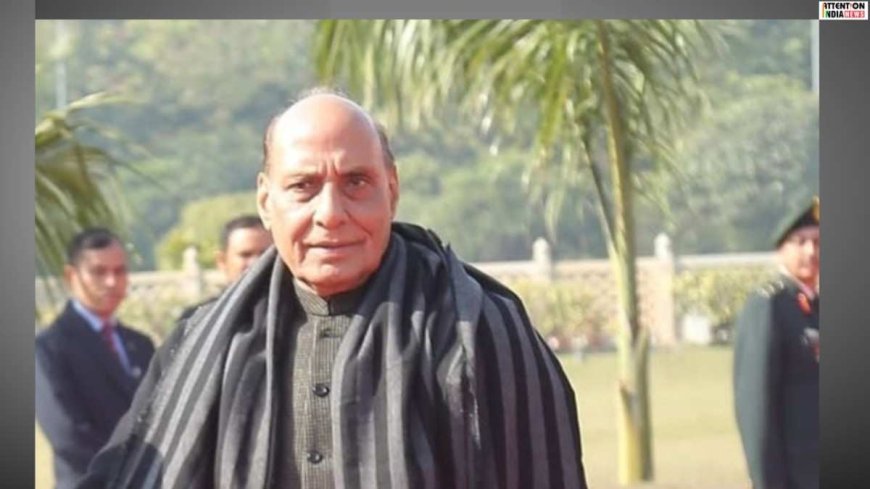Defence Minister Rajnath Singh meets Chinese counterpart Admiral Dong Jun; held constructive bilateral talks
Rajnath Singh said he had productive discussions with his Chinese counterpart Admiral Dong Jun in Qingdao.

New Delhi (India) June 27: On the sidelines of the Shanghai Cooperation Organisation (SCO), Defence Minister Rajnath Singh met bilaterally with his Chinese counterpart Admiral Dong Jun and proposed a four-pronged plan to improve diplomatic relations with China and reduce border tensions.
The four points of the formula are: using the current special representative level mechanism to prepare new processes to manage differences and improve relations, continuing to de-escalate, accelerating efforts to achieve the goal of demarcation and delimitation at the borders and adhering to the 2024 disengagement plan.
Singh said that the Kailash Mansarovar Yatra would now resume in a post on X. The Covid-19 pandemic and the military situation between the two sides on the Line of Actual Control (LAC) in the Galwan Valley of eastern Ladakh caused the pilgrimage to be briefly stopped in 2020.
He posted, “Held talks with Admiral Dong Jun, the Defence Minister of China, on the sidelines of SCO Defence Ministers' Meeting in Qingdao. We had a constructive and forward-looking exchange of views on issues pertaining to bilateral relations. Expressed my happiness on restarting of the Kailash Mansarovar Yatra after a gap of nearly six years. It is incumbent on both sides to maintain this positive momentum and avoid adding new complexities to the bilateral relationship" on X.
Rajnath Singh also brought up the issue of cross-border terrorism supported by Pakistan at the meeting. He emphasised that Operation Sindoor is now "India's principled position" against the problem.
He gifted Admiral Dong Jun a Madhubani painting from Bihar. The painting, which originated in the eastern state's Mithila region, stands out for its bright colours and patterns as well as its line designs.
The meeting comes after Singh's refusal to sign the SCO agreement that would have softened India's stand on terrorism after the Pahalgam attack, in which terrorists supported by Pakistan killed 26 people.
In the SCO document, China, the SCO chair and its all-weather partner Pakistan tried to avoid the focus from the issue of terrorism by excluding any reference to the April 22 incident. However, in an indirect hit at India the paper made reference to Balochistan and accused the country of causing instability in the Pakistani province.
Despite past hostilities, relations between China and India have started to improve. The biggest step was taken in 2024 when both nations finished withdrawing their soldiers from the Depsang and Demchok areas of eastern Ladakh.
In a meeting with Chinese Foreign Minister Wang Yi in Beijing on June 23, NSA Doval emphasised the importance of boosting the general growth of India-China bilateral relations, especially through the establishment of stronger people-to-people ties.
Aadrika Tayal

 Aadrika Tayal
Aadrika Tayal 





